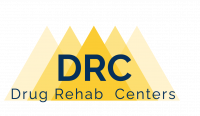Is Alcohol a Drug?

Alcohol is classified as a depressant, which means it slows down vital functions, resulting in slurred speech, unstable movement, distorted perceptions, and a delayed reaction time. This clearly indicates its addictive nature and proves the intoxication effect imparted by the drink. To put it simply, yes- alcohol is a drug and if you are looking for alcohol rehab, reach out to our team immediately.
When it comes to how it affects the mind, it’s best described as a substance that impairs a person’s capacity to think clearly and distorts their judgment.
Although alcohol is classed as a depressant, the type of effect is determined by the amount consumed. The majority of individuals drink for the stimulating impact, such as a beer or glass of wine to “loosen up.” However, if a person takes more alcohol than their body can manage, they or will experience the depressive effects of alcohol. They begin to feel “dumb,” and their coordination and control deteriorate.
What is Alcohol?
Alcohol is produced when yeast ferments the carbohydrates in various foods. Wine, for example, is made from sugary grapes, and beer is made from malted barley, which contains a sugar called maltose.
Cider is created from apples or other fruits that contain natural sugars, whereas vodka is made from potatoes or another plant-based product and then distilled to remove all but the ethanol content.
Ingredients in Alcohol
A chemical reaction occurs when sugars, yeast, and other components are combined to make ethanol. This ethanol alters the way our brain and bodywork when we consume it.
The amount of ethanol in various types of alcoholic beverages varies. Certain beverages produce more severe effects than others. The more alcohol consumed, the more severe the symptoms become.
The amount of alcohol consumed has little effect on addiction. It can happen if you drink beer or anything stronger like liquor. Is alcohol a drug? That is the main question.
Alcohol Content in Different Types of Drinks
There are various types of alcohol. The only alcohol used in beverages is ethanol, which is created by fermenting grains and fruits. Fermentation is a chemical reaction in which yeast reacts with certain substances in food to produce alcohol.
Although alcohol is technically classed as a dietary item, it also functions as a drug. Alcohol provides almost little vitamins, minerals, or protein in exchange for its calories. You acquire weight from an empty calorie source that provides no nutritious value to your body every time you eat one serving of alcohol. Following is a brief list of drinks with high and low content of alcohol.
High Content:
- Moonshine 90%+
- Vodka up to 50%
- Whiskey up to 50%
- Tequila up to 40%
- Rum up to 40%
Low Content:
- Wine and Wine Coolers up to 20%
- Ciders and Ales up to 8%
- Beer up to 6%
Alcohol, like many prescription and over-the-counter medications, is depressive. Although this medication is not “prescribed,” it has many of the same effects on the brain as other pharmaceuticals. Some of the prescription depressants advised to patients include:
- Tranquilizers
- Antipsychotics
- Sedatives
- Sleeping pills
Effects of Alcohol
The negative consequences of alcohol are what motivate us to seek it out and consume it. How many of us enjoy a drink or sip of wine at a social gathering? Do those drinks make you feel more relaxed and sociable? Food and drink are frequently combined, notably during BBQs, dinner parties, and cocktail hours. This is major because alcohol’s “side effects” can loosen us up and allow us to have more fun.
Short-term Side Effects of Alcohol
The risks of alcoholism are well-known. Alcohol can cause bodily harm, risky behavior, and social conflict, resulting in a loss of inhibitions and the riskier actions that can come from this lack of inhibition. The most obvious side effect of alcohol is that it causes us to become inebriated.
These are some of the symptoms of drunkenness:
- Impaired thinking
- Impaired motor skills
- Lack of coordination
- Sense of calm, and relaxation
- Lower heartbeat, blood pressure, breathing
- An overall feeling of sadness
- Urination difficulty
- Slurred speech
- Feeling tired
- Blackouts
- Dizziness
Long-Term Side Effects of Alcohol
Alcoholism is one of the many detrimental side effects of alcohol. An alcohol addiction treatment program can assist you in quitting drinking and avoiding the long-term effects it can have on your liver, pancreas, brain function, and overall health. Long-term alcohol consumption alters our minds and bodies in ways we may be unaware of.
Mental and Physical Side Effects
- Blackouts
- Stroke
- Ulcers
- Gastritis
- Cancer
- Suicide
- Death
- Moodiness
- Addiction (alcoholism)
- Miscarriage and stillbirth
- Alcohol poisoning
- Loss of sex drive
- Malnutrition
- Heart disease
- Abusive behavior
- Worsening of mental disorders
- Suicidal thoughts/tendencies
- Development of Wernicke-Korsakoff Syndrome
Approximately 80% of alcoholics are low in thiamine. Wernicke-Korsakoff Syndrome, a brain condition that causes encephalopathy or psychosis, can result from this deficit.
Social Side Effects
- Divorce
- Job loss
- Self-isolation
- Loss of friends
- Loss of home
- Financial strain
- Relationship strain
- Arrest and imprisonment
- Indirect harm through accidents
- Mental illness and alcoholism
Wrapping Up
In a nutshell, alcohol misuse is linked to a variety of mental illnesses and can aggravate their severity. Alcohol does not require a prescription and can be purchased at any store. Teens, middle-aged people, and the elderly are all susceptible to addiction.
Our experienced teams at Drug Rehab Centers help you get rid of your alcohol addiction and live a drug-independent life. Reach out to our experts today and know more!
